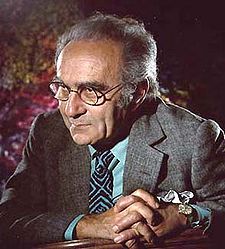Science, like art, is not a copy of nature but a re-creation of her.
Dissent is the native activity of the scientist, and it has got him into a good deal of trouble in the last years. But if that is cut off, what is left will not be a scientist. And I doubt whether it will be a man.
Man is not the most majestic of the creatures, long before the mammals even, the dinosaurs were far more splendid. But he has what no other animal possesses: a jigsaw of faculties, which alone, over three thousand million years of life, made him creative. Every animal leaves traces of what he was. Man alone leaves traces of what he created.
Every animal leaves traces of what it was; man alone leaves traces of what he created.
Has there ever been a society which has died of dissent? Several have died of conformity in our lifetime.
It is important that students bring a certain ragamuffin, barefoot irreverence to their studies; they are not here to worship what is known, but to question it.
Knowledge is an unending adventure at the edge of uncertainty.
Man is unique not because he does science, and his is unique not because he does art, but because science and art equally are expressions of his marvelous plasticity of mind.
Man masters nature not by force but by understanding. This is why science has succeeded where magic failed: because it has looked for no spell to cast over nature.
The painter's portrait and the physicist's explanation are both rooted in reality, but they have been changed by the painter or the physicist into something more subtly imagined than the photographic appearance of things.